Intro
Manage IBS symptoms with a tailored diet. Discover 5 tips for an effective IBS diet, including trigger food avoidance, gut-friendly nutrition, and meal planning strategies to alleviate irritable bowel syndrome symptoms and improve digestive health.
Irritable Bowel Syndrome (IBS) is a common gastrointestinal disorder that affects millions of people worldwide. The symptoms of IBS can be uncomfortable and debilitating, including abdominal pain, bloating, gas, diarrhea, and constipation. While there is no cure for IBS, managing the symptoms through dietary changes can be an effective way to alleviate discomfort and improve overall quality of life. A well-planned IBS diet can help regulate bowel movements, reduce symptoms, and promote digestive health.
Living with IBS can be challenging, but it is not impossible to manage. By making informed food choices and developing healthy eating habits, individuals with IBS can reduce their symptoms and improve their overall well-being. The key to managing IBS through diet is to identify trigger foods, avoid common irritants, and focus on consuming nutrient-dense foods that promote digestive health. With the right approach, individuals with IBS can enjoy a varied and balanced diet that meets their nutritional needs and minimizes symptoms.
Understanding the relationship between food and IBS symptoms is crucial for developing an effective IBS diet. Certain foods can trigger or worsen IBS symptoms, while others can help alleviate them. By keeping a food diary and tracking symptoms, individuals with IBS can identify their personal trigger foods and make informed decisions about their diet. This knowledge, combined with a comprehensive understanding of IBS and its management, can empower individuals to take control of their symptoms and improve their quality of life.
Understanding IBS and Its Symptoms
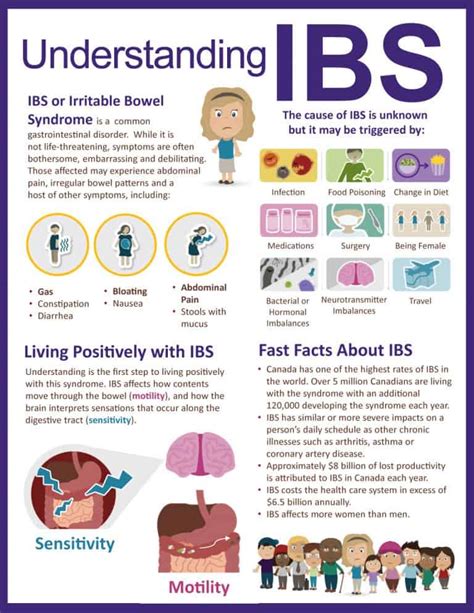
IBS is a complex condition, and its symptoms can vary from person to person. The most common symptoms of IBS include abdominal pain, bloating, gas, diarrhea, and constipation. These symptoms can be intermittent or persistent and may be triggered by specific foods, stress, or other factors. Understanding the underlying causes of IBS symptoms is essential for developing an effective management plan. While the exact causes of IBS are still not fully understood, research suggests that a combination of factors, including gut motility, hypersensitivity, and gut microbiota, contribute to the development of IBS symptoms.
Common IBS Symptoms
Some of the most common symptoms of IBS include: * Abdominal pain or cramping * Bloating and gas * Diarrhea or constipation * Changes in bowel movements * Mucus in the stool * Feeling of incomplete evacuationDeveloping an IBS Diet Plan
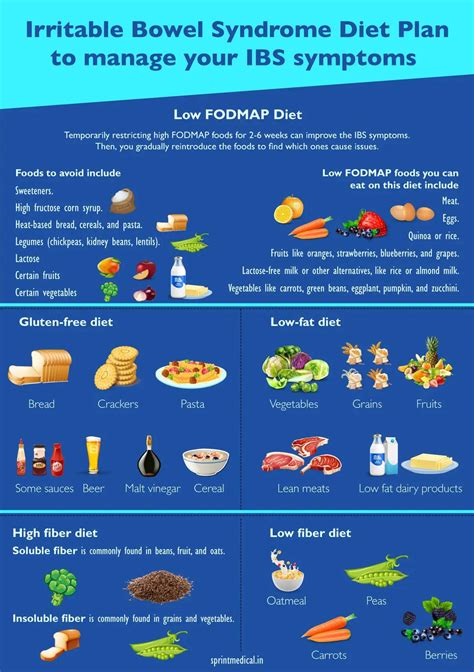
A well-planned IBS diet can help alleviate symptoms and improve overall quality of life. The key to developing an effective IBS diet plan is to identify trigger foods, avoid common irritants, and focus on consuming nutrient-dense foods that promote digestive health. Some of the most common trigger foods for IBS include:
- Gluten
- Dairy products
- High-FODMAP foods
- Spicy or fatty foods
- Caffeine and carbonated drinks
IBS Diet Tips
Here are some tips for developing an effective IBS diet plan: * Keep a food diary to track symptoms and identify trigger foods * Eat small, frequent meals to reduce symptoms * Avoid common irritants, such as gluten and dairy products * Focus on consuming nutrient-dense foods, such as fruits, vegetables, and whole grains * Stay hydrated by drinking plenty of waterManaging IBS Symptoms through Diet
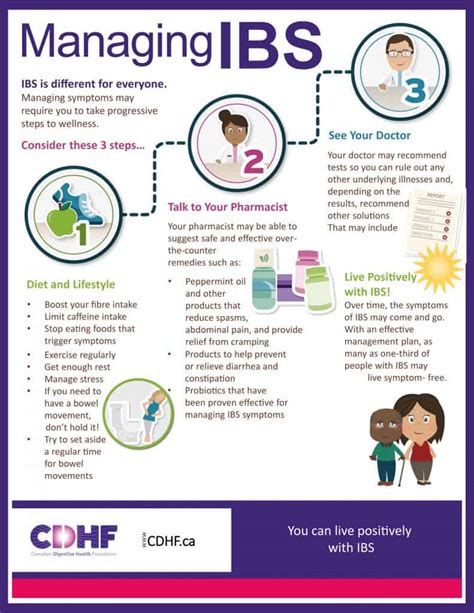
Managing IBS symptoms through diet requires a comprehensive approach that takes into account individual nutritional needs and trigger foods. Some of the most effective ways to manage IBS symptoms through diet include:
- Eating a low-FODMAP diet to reduce symptoms of bloating and gas
- Avoiding gluten and dairy products to reduce inflammation and irritation
- Incorporating probiotics and prebiotics to promote gut health
- Staying hydrated by drinking plenty of water
Low-FODMAP Diet
A low-FODMAP diet is a type of diet that restricts the intake of certain types of carbohydrates that can be difficult for some people to digest. FODMAPs (Fermentable Oligo-, Di-, Mono-saccharides, and Polyols) are types of carbohydrates that can be found in a wide range of foods, including wheat, dairy products, and high-fiber fruits and vegetables. By restricting the intake of high-FODMAP foods, individuals with IBS can reduce symptoms of bloating, gas, and abdominal pain.5 Tips for an Effective IBS Diet
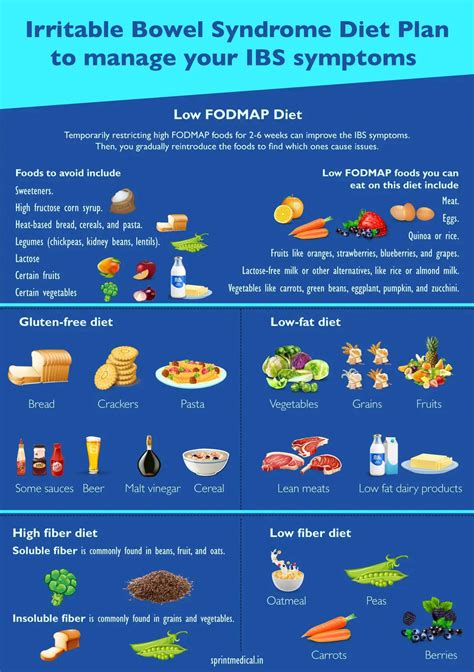
Here are 5 tips for an effective IBS diet:
- Eat small, frequent meals to reduce symptoms
- Avoid common irritants, such as gluten and dairy products
- Incorporate probiotics and prebiotics to promote gut health
- Stay hydrated by drinking plenty of water
- Keep a food diary to track symptoms and identify trigger foods
Probiotics and Prebiotics
Probiotics and prebiotics are types of supplements that can help promote gut health and reduce IBS symptoms. Probiotics are live bacteria that can help regulate the gut microbiota, while prebiotics are types of fiber that can help feed the good bacteria in the gut. By incorporating probiotics and prebiotics into the diet, individuals with IBS can reduce symptoms of bloating, gas, and abdominal pain.Conclusion and Next Steps
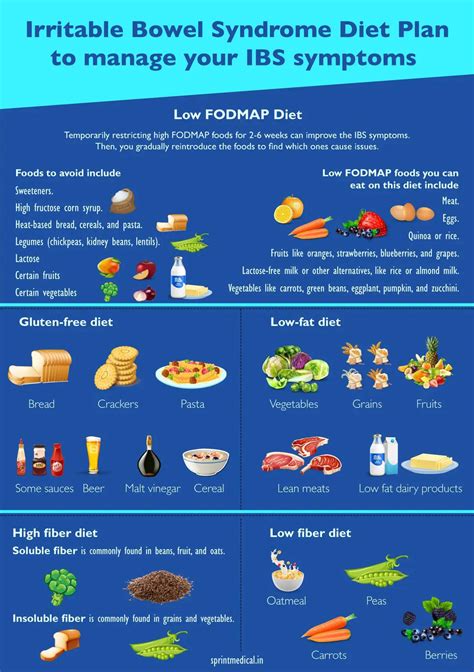
In conclusion, managing IBS symptoms through diet requires a comprehensive approach that takes into account individual nutritional needs and trigger foods. By following the 5 tips outlined in this article, individuals with IBS can reduce symptoms and improve their overall quality of life. Remember to keep a food diary, eat small, frequent meals, avoid common irritants, incorporate probiotics and prebiotics, and stay hydrated by drinking plenty of water.
We invite you to share your thoughts and experiences with IBS and diet in the comments section below. Have you found any specific foods or supplements that help alleviate your IBS symptoms? Do you have any questions or concerns about developing an effective IBS diet plan? Share your story and help others who may be struggling with IBS.
What are the most common symptoms of IBS?
+The most common symptoms of IBS include abdominal pain, bloating, gas, diarrhea, and constipation.
How can I develop an effective IBS diet plan?
+To develop an effective IBS diet plan, keep a food diary to track symptoms and identify trigger foods, eat small, frequent meals, avoid common irritants, incorporate probiotics and prebiotics, and stay hydrated by drinking plenty of water.
What are FODMAPs and how can they affect IBS symptoms?
+FODMAPs (Fermentable Oligo-, Di-, Mono-saccharides, and Polyols) are types of carbohydrates that can be difficult for some people to digest. Restricting the intake of high-FODMAP foods can help reduce symptoms of bloating, gas, and abdominal pain in individuals with IBS.
